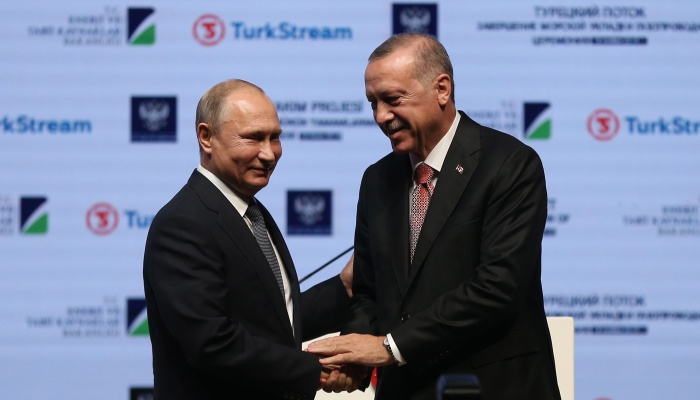Cevheri Güven
As the Turkish government has been scrambling to mitigate a crisis with the US and NATO over its purchase of the Russian-made S-400 missile defense system on the one hand, it continues on the other hand to signal a possible deepening of military ties with Moscow. Minister of Industry and Technology Mustafa Varank advocated for the development of joint projects with Russia and mentioned the possible purchase of Russian military jets.
In an interview with the Sputnik news agency, Varank touched on the potential acquisition of a second batch of S-400s as well as the aircraft. He said the ultimate objective with the S-400s is joint manufacturing and that his government has been engaged in talks with Moscow towards that end.
“Our Presidency of Defense Industries [SSB] continues its talks with its Russian counterparts. We do not see any obstacles to cooperating with any country on any kind of technology. We would be pleased if we can manage to come up with mutually beneficial projects with Russia,” Varank said.
Sergey Chemezov, the CEO of Rostec Corporation, said in December 2020 that Russia had signed the first agreement on the delivery of S-400s to Turkey and that it was up to Ankara to decide whether or not to make a second deal.
First concrete declaration on Russian jets
Minister Varank said Russia’s proposal for exporting military planes to Turkey came after the US removed Ankara from an international program to jointly manufacture the new generation F-35 stealth fighters.
Varank confirmed that the government is currently working on Russia’s offer for Su-35s and Su-57s.
“It is out of the question for us to categorically rule out the idea of purchasing jets from this or that country. If Russia is able to offer aircraft that match our current needs and if it turns out that we will not face difficulties in integrating these into our systems, of course we could purchase the planes from Russia,” Varank said.
The government changes discourse once again
After it faced Washington’s sanctions under the Countering America’s Adversaries Through Sanctions Act (CAATSA) over its S-400 purchase a few months ago, Ankara kicked off the new year with visible efforts to reduce tensions with the US during new president Joe Biden’s term. Defense Minister Hulusi Akar brought up the “Crete model,” the idea of storing S-400s in a warehouse only to be used for training purposes, similar to Greece’s takeover and storing of S-300s from Cyprus. US Ambassador David Satterfield, however, in a meeting with Turkish journalists in February said the Crete model predates the adoption of CAATSA and that it would not be a viable alternative now.
In addition to Akar, presidential spokesperson İbrahim Kalın also tried to reduce tensions, declaring that the S-400s would in no way be integrated into NATO systems and that his government hopes to find a way to resolve the issue with the Biden administration.
Yet Turkey reverted to this rhetoric in March. After Varank’s comments, spokesperson Kalın made a statement in a TV interview that did not support his earlier comments.
“It is out of the question for Turkey to take a step back on the S-400s. It is an agreement made with another sovereign country,” Kalın said. “We want them to understand that the decision to purchase the S-400s was not made overnight. The reason why Turkey, a member of NATO and a part of the transatlantic alliance, had to buy its air defense system from Russia is a question that the leading actors of the Western alliance need to answer.”
Defense Minister Akar was asked in December about the issue of purchasing Russian jets, to which he had replied by avoiding a direct answer. “We are looking into the issue with a broad perspective. Anything is possible,” Akar had said.

